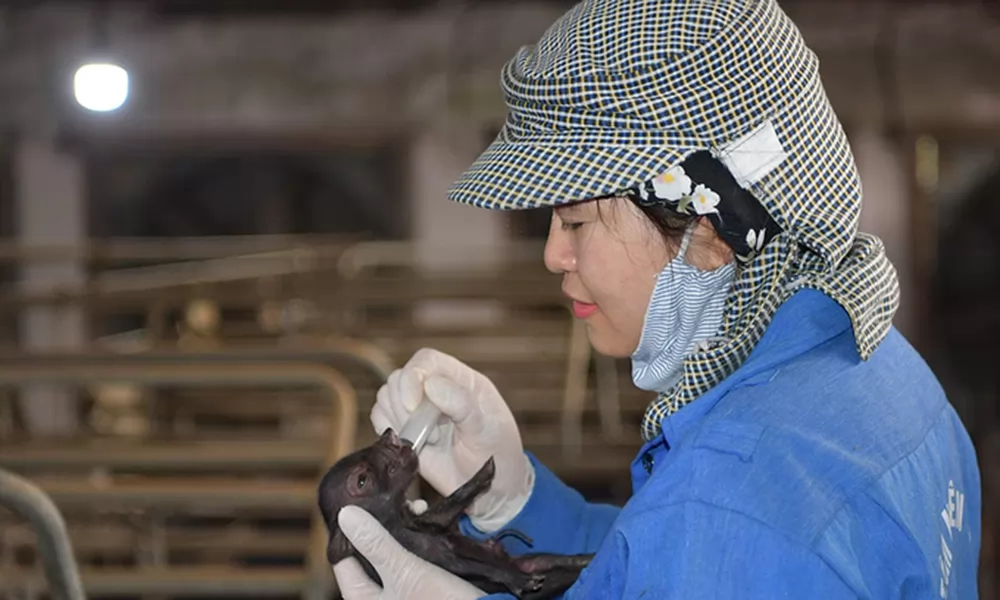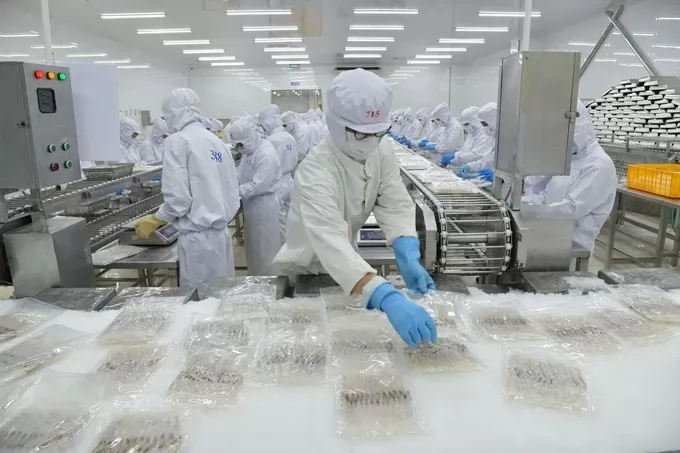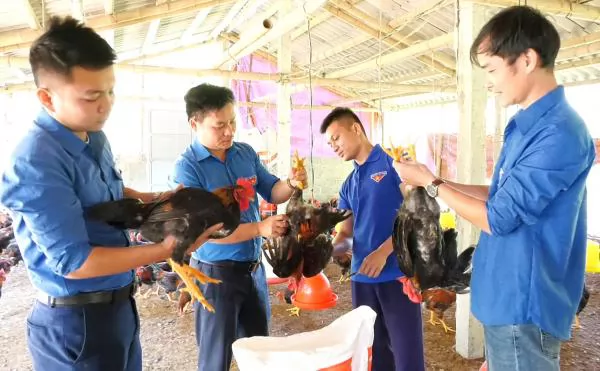Vietnam successfully clones endangered pig breed

A baby Vietnamese Pot-bellied pig is fed by an employee of the Thuy Phuong pig research center in Hanoi's Bac Tu Liem District, March 14, 2021. Photo by VnExpress/Van Giang.
For the first time, Vietnam has successfully cloned the endangered Vietnamese Pot-bellied pigs using a somatic cell cloning technique.
The National Institute of Animal Sciences under the Ministry of Agriculture and Rural Development announced Sunday that four baby Vietnamese pot-bellied pigs have been reproduced through a cloning technique involving somatic cells derived from ear tissues.
The Vietnamese pot-bellied pig is a traditional, domestic breed reared for meat. It is native to northern Vietnam, with their characteristic black and wrinkled skin. Though it is not considered to bring in high economic value, its meat is regarded to be of high quality. The FAO has classified the pig as an endangered breed.

Vietnamese Pot-bellied pigs on rice terraces in Sa Pa, Lao Cai Province, northern Vietnam. Photo by Viethavvh.
Pham Cong Thieu, head of the animal sciences institute, said the "birth" of the baby pigs was a technological leap for Vietnam in animal cloning.
"The achievement has opened up new research paths for applying animal cloning technologies in choosing and preserving animal breeds that are very rare or have big economic value," he said.
By: Tat Dinh/VnExpress
Maybe you are interested

Hanoi, Belgium\'s Wallonia develop 3B bull breed
A working delegation led by Vice Chairman of the Hanoi People's Committee Nguyen Manh Quyen visited and held a working session with Belgimex, supplier of Blanc Blue Belgium (3B) bulls...

Vietnam\'s agricultural, forestry, fishery exports: USD 33.21 billion in 8 months
China, the USA and Japan continue to be the top 3 export markets of Vietnam's agricultural, forestry and fishery products in 2023.

Building brand name for local chicken breed in Vietnam
Luong Van Duong, a young man from the Muong ethnic group, has been searching for a solution to make a chicken breed from his hometown known to the public and eventually become a special brand in Vietnam.





